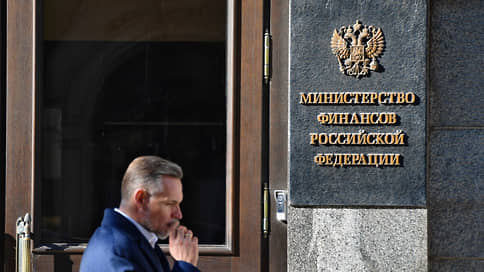Public debt showed moderation – Newspaper Kommersant No. 49 (7494) of 03/23/2023
[ad_1]

The Ministry of Finance adjusted the tactics of borrowing in the debt market, offering investors only a medium-term issue of OFZ with a constant coupon and bonds with a variable par value. However, the demand for government bonds turned out to be small against the backdrop of turbulence in the debt market. As a result, only classic government bonds were placed for a total of 15.3 billion rubles. And the Ministry of Finance refused to place inflationary bonds at all due to too aggressive applications from investors.
The Ministry of Finance has made changes to the tactics of borrowing in the debt market. On March 22, the ministry offered government bonds with a fixed coupon (OFZ-PD) and a floating par value (OFZ-IN, linker). Previously, the ministry placed at least two issues of classic government bonds weekly, one of which was always over nine years old, and added a linker once every three weeks. “Such issues are not popular with investors,” said Mikhail Vasilyev, chief analyst at Sovcombank. At two auctions in February on a long issue (OFZ-PD series 26242) only 7.3–7.4 billion rubles were placed. OFZ-IN bonds were placed last week, but then, with demand of 15.1 billion rubles. only 7.3 billion rubles were attracted.
Therefore, market participants did not expect significant results from the current auctions either. During the placement of OFZ-PD, demand amounted to only 32.7 billion rubles, which is 1.6 times lower than at the previous auction for these securities, held on February 22.
At the same time, the Ministry of Finance satisfied almost half of the applications for RUB 15.3 billion.
Moreover, the largest of them (1–2.5 billion rubles in volume) accounted for more than half of the placement volume. The yield on the cut-off price was 10.19% per annum. According to Dmitry Gritskevich, manager for analysis of banking and financial markets at PSB, the premium to the yield curve was 5 bp. The decrease in demand for debt securities occurred against the backdrop of deteriorating market conditions due to tough statements by the Central Bank following the last meeting of the board of directors and the unfolding banking crisis in the US and Europe. “At the external negative, the yield curve for government bonds rose by 10–20 bp over the week. etc., and the reduction in supply from the Ministry of Finance as a whole can be a positive signal for the market,” notes Mr. Gritskevich.
At the same time, the OFZ-IN auction was declared invalid “due to the lack of bids at acceptable price levels.” Alexander Yermak, chief analyst of debt markets at BC Region, notes that interest was also low at the debut auction of this issue, which took place a week earlier.
“Due to the low liquidity of this issue, investors could demand a higher yield premium, which the Ministry of Finance did not agree to,” notes Mikhail Vasiliev.
Interest in inflationary papers is declining against the backdrop of declining inflation in Russia. According to Rosstat, annual inflation slowed down to 5.1% as of March 20, and for the week amounted to 0.1%. “Over the past few weeks, near-zero price dynamics have been recorded. Taking into account the fact that OFZ-IN denominations are recalculated for inflation dynamics with a two-month lag, investors refrain from buying linkers so as not to fall into this billing period,” notes Dmitry Gritskevich. Mikhail Vasilyev also adds that against the background of the banking crisis in the West, lower oil prices and the weakening of the ruble, pro-inflationary risks have increased.
As a result, in order to fulfill the quarterly plan, which is set at the level of 800 billion rubles, next week the Ministry of Finance needs to attract 121 billion rubles. This is more than double the average amount of borrowing on better auction days, so market participants doubt that the quarterly plan will be fulfilled. “In general, the Ministry of Finance has enough reserves and is still spending stash to finance the budget deficit and not put pressure on the debt market with large volumes of placements,” Mr. Vasilyev notes. Moreover, in the last two months, operational data show a decrease in government spending, which is likely to reduce the budget deficit, Dmitry Gritskevich notes.
[ad_2]
Source link





